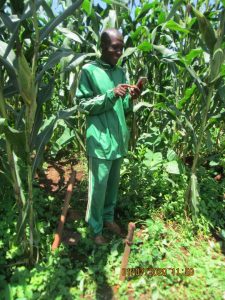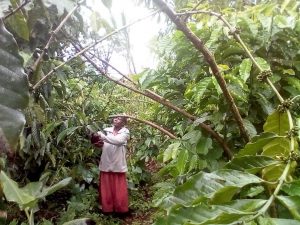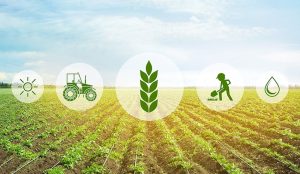How COVID-19 can fast track ‘Farming 4.0’ in Africa
- 30
- Jun
Digitalisation is a potential game changer for agriculture in Africa
That is the key takeaway from the first of a series of webinars on digital agriculture to help Africa through coronavirus lectured by the Food and Agriculture Organisation, and African Development Bank. The continent’s digital agriculture industry has been growing well before the COVID-19 pandemic. The number of farmers subscribed to digital services has increased by 45% per year in the last 3 years. Farmers are using smartphone applications that link them to multimedia advisory content on farm inputs, market prices, crop insurance and applications for loans. Ethiopia’s 8028 hotline connects 4 million users, the highest on the continent. Its success is attributed to the free service and the delivery of information content in local languages. Also, mobile money services are reducing transactions costs of doing business for farmers.

There is the positive expectation that the COVID-19 crisis could present a turning point towards building Africa up to high speed and intensifying digitalisation. Counter-attacking the pandemic while minimising the associated economic costs calls for appropriate digital infrastructure. But the success of digitalisation in agriculture cannot be determined by its economic value only. Smallholder farmers should be at the centre of the conversation on digital Africa for the reason that they grow 80% of food in Sub-Saharan Africa. Smallholder farmers will ultimately shape the plot of the continent’s digital farming narrative.
The number one problem: the ‘digital divide’
Quick digital responses in agriculture will work best where there are already existing digital capacities among farmers. Though, low technology adoption of smallholder farmers remains the most important unresolved issue. It is not restricted to Africa only but is a pattern worldwide.
For a digital Africa to take off, governments must tackle the ‘digital divide’ that is the compounding effects of other social exclusions. Connectivity tends to be limited in rural areas and women smallholder farmers are the most affected social group. Africa remains the only continent whose digital gender gap has widened since 2013 where the proportion of women using the internet is a quarter less than their male counterparts.
Paying attention to women’s struggles
On top of the digital gender gap, COVID-19 risks exacerbating gender differences in the burdens that women farmers face. Why? For one, where women are primarily responsible for household chores and caretaking duties, they have considerably less time for running their farms and SMEs compared to men. Providing that their children go to school, now with the closure of educational institutions caretaking duties are likely to be more burdensome.
Compared to men, women farmers have less access to savings and instant credit. In terms of savings, the lockdown measures and increased job losses due to coronavirus have dropped remittance flows. Meaning women farmers have not received funds that they depend on. With little or no capital, women struggle to weather income losses.
On another point, the pandemic exposes gender differences in land rights. Women who become widowed because of coronavirus infection are in danger of being disinherited given that property rights are conditional on marriage. Where women farmers already do not have security of land tenure, COVID-19 presents another risk widening the gender gap in assets, productivity and incomes.

Where does EuroAfri Link fit in?
Coming back to topic of digital transformation, governments have the responsibility to create enabling conditions for Farming 4.0 in Africa to succeed by articulating a vision for the foundation of a digital economy and passing policies that are data-driven and more inclusive. Governments must unlock the potential of digital Africa before non-state actors like EuroAfri Link can jump in.
This June, the African Development Bank launched the programme Feed African Response to COVID-19 (FAREC) paving the way for a comprehensive intervention to support African countries across all aspects of the agriculture sector including reimagining how information technology can leverage economic productivity and growth.
On smaller scale, EAL contributes to making positive action in the face of COVID-19 in Africa by working with trusted local partners to deliver emergency support to target groups particularly women and youth populations.
To learn more about EAL’s ongoing programmes in Rwanda, Uganda and Cameroon, please visit our blog.
Thinking simpler
Importantly, any improvement in the digital transformation in agriculture hinges on the improved understanding of policymakers and development agencies on the barriers that matter most to smallholders. Farmers’ preference for conventional technologies suggest that traditional solutions are still needed and cannot be replayed by digitalisation only. Simple technologies and messaging services linked to weather institutes for forecasts have changed productivity for farmers. Therefore, it is crucial to place smallholder farmers at the centre of the discussion in order to understand which specific digital products are meant to help them. In this way, digital plus analogue solutions rather than digital replacing analogue solutions will reflect the users’ needs.
Author: Claudia Zaccari, Project officer @ EAl in charge of EU-Africa cooperation

